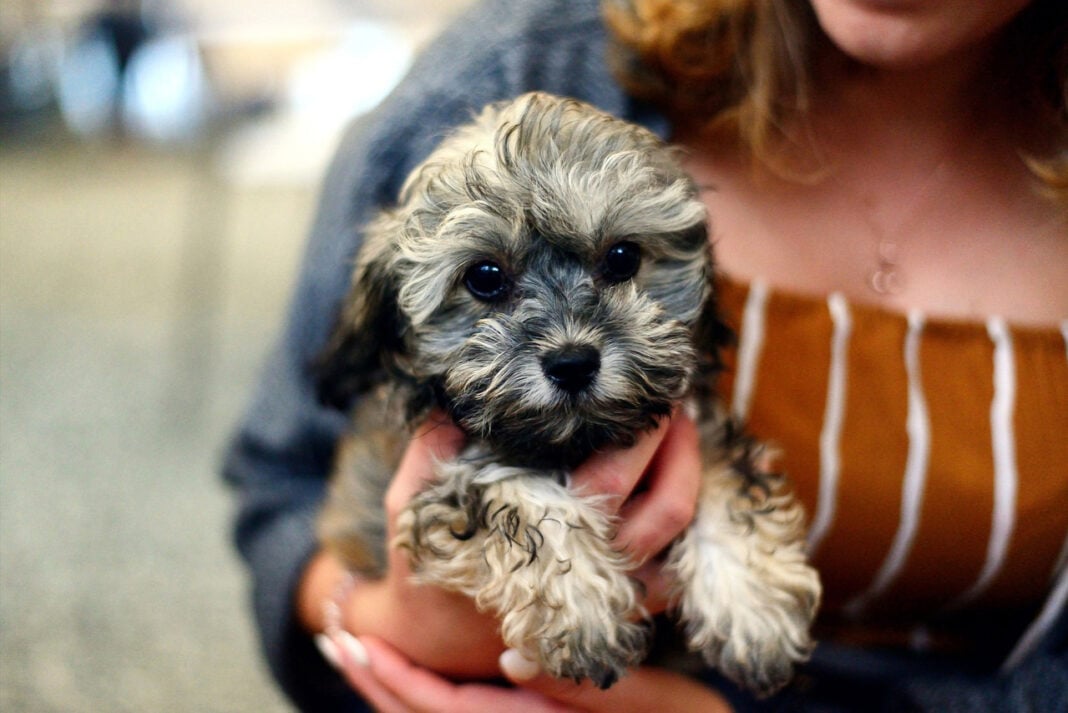Adopting a puppy is an exciting and rewarding experience, but it also comes with its own set of responsibilities and preparations. Bringing a new furry friend into your home requires careful planning to ensure both the puppy and your household adjust smoothly. This guide outlines the essential steps to take when adopting a puppy, ensuring that you and your new companion embark on a happy and healthy journey together.
1. Preparing Your Home for a New Puppy
Before bringing your new puppy home, it is crucial to prepare your living environment to ensure it is safe and welcoming. Start by puppy-proofing your home: remove any hazardous items, secure electrical cords, and make sure that small objects or toxic substances are out of reach. Designate a specific area for your puppy where it can feel secure and comfortable, such as a cozy bed or crate in a quiet corner. Additionally, invest in essential supplies like food and water bowls, a collar with ID tags, a leash, and a selection of chew toys. This preparation not only creates a safe space for your new puppy but also helps in minimizing potential stress during the transition.
2. Choosing the Right Puppy for Your Lifestyle
Selecting the right puppy is one of the most important steps in the adoption process. Consider your lifestyle, living situation, and activity level when choosing a breed or individual puppy. Different breeds have varying needs and temperaments, so it’s essential to find one that fits well with your family dynamics and daily routine. If you live in an apartment, a smaller breed or one with lower exercise needs might be more suitable. Conversely, if you have an active lifestyle and ample space, a high-energy breed could be a great match. Don’t forget to research the breed’s health issues and care requirements to ensure you can meet its needs. Meeting the puppy in person and interacting with it can also help you gauge its personality and compatibility with your household.
3. Establishing a Routine and Veterinary Care
Once you’ve adopted your puppy, establishing a routine is crucial for its well-being and adjustment. Puppies thrive on consistency, so create a daily schedule that includes feeding, playtime, training, and bathroom breaks. Enroll your puppy in basic obedience training classes to start building a foundation for good behavior and socialization. Additionally, schedule a visit to the veterinarian for a thorough health check-up and to discuss vaccinations, deworming, and preventative care. Regular veterinary visits will help monitor your puppy’s growth and address any health concerns promptly. By establishing a routine and ensuring proper medical care, you lay the groundwork for a healthy and happy relationship with your new puppy.
4. Finding the Perfect Puppy Through Specialized Websites
When searching for a new puppy, specialized websites with an exclusive selection of puppies can be incredibly helpful. These platforms often provide detailed information about various breeds. By browsing these sites, you can find a range of puppies that fit your lifestyle and preferences, including miniature dachshund puppies for loving homes that might be particularly well-suited for smaller living spaces or families seeking a playful companion. These websites also typically include resources for understanding the breed’s specific needs and connecting with reputable breeders, making it easier to find the perfect match. Whether you’re interested in miniature dachshund puppies or another breed, these dedicated sites offer a valuable tool in your puppy adoption journey, ensuring that you make an informed and satisfying choice.
5. Understanding Adoption Fees and Costs
When adopting a puppy, it’s important to be aware of the associated costs beyond the initial adoption fee. Adoption fees can vary significantly based on the breed, age, and source of the puppy. These fees often help cover the cost of vaccinations, spaying or neutering, and initial medical care, which can save you from additional expenses early on. However, it’s crucial to budget for ongoing costs as well, such as high-quality food, grooming, regular veterinary visits, and unforeseen medical expenses. By understanding and preparing for these costs, you can ensure that you’re financially equipped to provide your new puppy with a comfortable and healthy life.
6. The Importance of Socialization and Training
Socializing and training your new puppy is essential for fostering a well-adjusted and well-behaved companion. Early socialization helps your puppy become comfortable with various people, animals, and environments, reducing the likelihood of behavioral issues later on. Enroll your puppy in socialization classes or arrange playdates with other dogs to expose it to different experiences. Basic training is equally important; it sets the groundwork for good behavior and strengthens the bond between you and your puppy. Consistent, positive reinforcement training methods are effective in teaching essential commands and behaviors. Investing time in socialization and training will lead to a more harmonious relationship and a well-rounded, confident dog.
Adopting a puppy is a significant and rewarding decision that involves careful planning and consideration. By preparing your home, selecting the right puppy for your lifestyle, understanding the costs, and focusing on training and socialization, you set the stage for a successful and fulfilling relationship with your new furry friend. Utilizing specialized websites for finding puppies, can streamline your search and connect you with the perfect addition to your family. With thoughtful preparation and commitment, you can ensure a happy and healthy future for both you and your new puppy.







